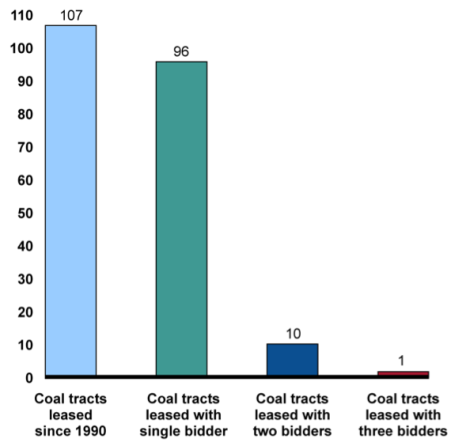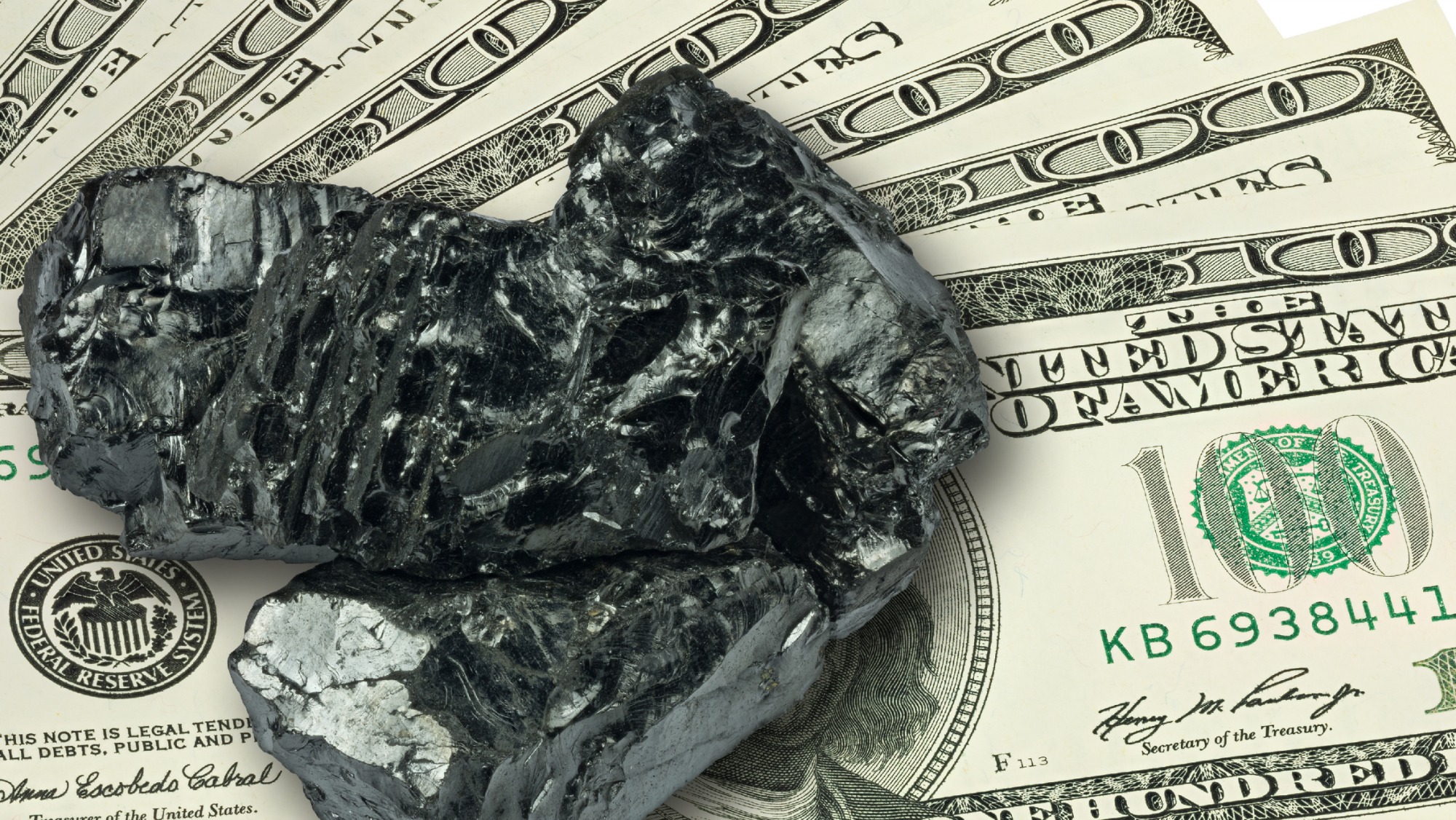It’s bad enough that the federal government leases out public lands to private companies to be torn up and mined for coal. Even worse is that the feds are ripping off taxpayers in the process, leasing the coal tracts at way-below-market prices, through a totally inept program, according to a new federal study.
The U.S. Bureau of Land Management has leased 107 coal-laden tracts of land to mining companies since 1990, recently generating about $1 billion a year for federal coffers. Coal mining on federal land accounts for two-fifths of the 1 billion tons of coal mined every year in the U.S. Less coal is being burned in the U.S. these days, but it still produces about 40 percent of the nation’s electricity. Meanwhile, coal exports are growing.
Auctions for the coal-tract leases attract few bidders, and a new report from the U.S. Government Accountability Office is the latest reminder that the feds are selling the public short by accepting lowball offers.
Of the 107 coal-tract leases, 96 were sold to the only bidder — often to a company that was already mining for coal nearby:

GAO
The government is under no obligation to accept the lowball bids, but it appears to be doing so anyway because of systemic failures within BLM to properly estimate fair market value. The GAO found that some bureau offices failed to follow procedures, seek independent advice, or consider future market conditions when estimating market value. And when the bureau sold America’s assets at fire-sale prices, it “did not consistently document the rationale for accepting bids that were initially below the fair market value,” according to the report.
“Taxpayers are likely losing out so that coal companies can reap a windfall,” said Sen. Ed Markey (D-Mass.), who asked the GAO to conduct the study. Markey’s office estimates that hundreds of millions of taxpayer dollars may have been lost to coal companies through these bargain leases.
Following publication of the GAO report on Tuesday, Markey and environmentalists called on the federal government to suspend new coal leases until it can be sure it will get fair prices for them.
Of course, it would be even better for the U.S. to stop coal mining on federal land entirely — something that President Obama might consider were he to take his own rhetoric about climate change seriously.
On that note, here’s how Rolling Stone describes the administration’s muddled coal policy in a must-read article titled “How the U.S. Exports Global Warming”:
With the freefall in domestic [coal] demand, industry giants like Peabody are desperate to turn American coal into a global export — targeting booming Asian economies that are powering their growth with dirty fuel. China now consumes nearly as much coal as the rest of the world combined, and its demand is projected to grow by nearly 40 percent by the end of the decade. “China’s demand,” according to William Durbin, head of global markets for the energy consultancy Wood Mackenzie, “will almost single-handedly propel the growth of coal.”
Since Obama took office, American coal exports are up more than 50 percent. … [T]he administration opened up more than 300 million tons of coal in the Powder River Basin to bidding by the coal companies last year. The coal is on government land; it belongs to the public. Yet the leasing practices of the Bureau of Land Management (BLM) are so flawed that one independent study estimates that taxpayers have been fleeced of $30 billion over the past three decades. In the past, that stealth subsidy to Big Coal at least helped create cheap power for American homes and businesses. Today, the administration has put American taxpayers in the position of subsidizing coal destined to fuel the growth of our nation’s fiercest, and carbon-filthiest, economic rival.
In an era of climatic craziness and growing clean energy capacity, the last thing Americans should be subsidizing is coal mining.




